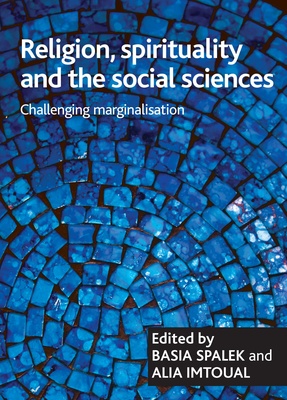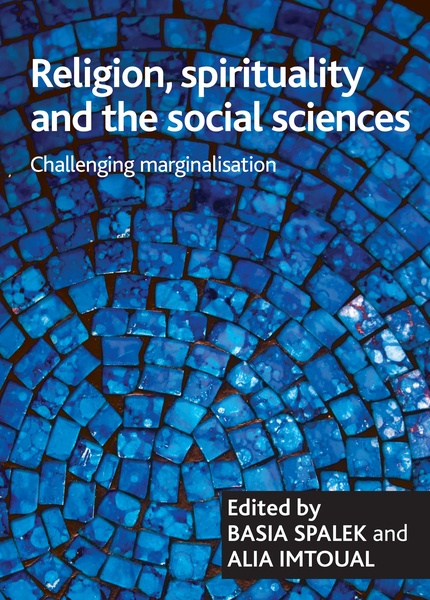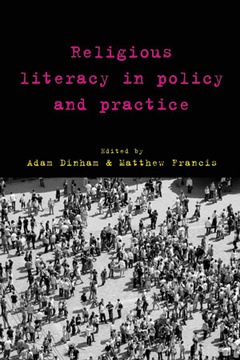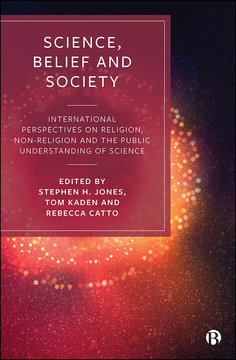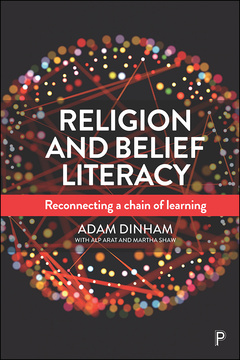Religion, spirituality and the social sciences
Challenging marginalisation
Edited by Basia Spalek and Alia Imtoual
Published
Sep 3, 2008Page count
224 pagesISBN
978-1847420411Dimensions
240 x 172 mmImprint
Policy PressA growing number of people are claiming or reclaiming a religious or spiritual identity for themselves. Yet, in contemporary Western societies, the frameworks of understanding that have developed within the social science disciplines, and which are used to analyse data, are secular in nature, and so may be inappropriate for investigating some aspects of religion, spirituality and faith and how these intersect with individuals' lives.
This edited collection addresses important theoretical and methodological issues to explore ways of engaging with religion and spirituality when carrying out social science research. Divided into three sections, the book examines the notion of secularism in relation to contemporary western society, including a focus upon secularisation; explores how the values underpinning social scientific enquiry might serve to marginalise religion and spirituality; and reflects on social science research methodologies when researching religion and spirituality.
With international contributions from key academics in the fields of religious studies, cultural studies, political science, criminology, sociology, health and social policy, this engaging book will provide social science students, educators, researchers and practitioners with an essential overview of key debates around secularism, faith, spirituality and social science research.
"This is a book that can be read and used for many different degrees and courses in the social sciences. It is remarkably well structured. The excellent introductory and concluding chapters by the editors, careful commentaries between each section, in addition to the bibliographies and index make it an extremely accessible and functional volume." AWRAWSA e-journal,
"Renewed interest in religion is stimulating social science to take the topic more seriously. This lively volume showcases the ways in which scholars are approaching the topic, bringing new perspectives to bear in the process." Linda Woodhead, Director AHRC/ESRC Religion and Society Programme, Lancaster University, UK
Dr Basia Spalek is a Senior Lecturer in Criminology and Criminal Justice Studies within the IASS at the University of Birmingham. She has extensive research experience in faith identities, crime and victimization.
Dr Alia Imtoual is a Lecturer in the School of Education at Flinders University (Australia). She writes about religion and faith identities of Muslims in Australia, the intersections of race, gender and religion, and the institutionalization of religious racism.
Contents: Introduction ~ Basia Spalek and Alia Imtoual; Part one: Secularism and Society: key debates on secularism and society: Political religion: secularity and the study of religion in global civil society ~ J.D'Arcy May; Australia's 'shy' de-secularisation process ~ A. Possamai; Muslims, equality and secularism ~ Tariq Modood; Section 116: the politics of secularism in Australian legal and political discourse ~ H. Randell-Moon; Dreams of the autonomous and reflexive self: the religious significance of contemporary lifestyle media ~ G.Lynch; Part two: Marginalisation of religious and spiritual issues: Studying religion in Sub-Saharan Africa ~ M. Frahm-Arp; Demographic fertility research: a question of disciplinary beliefs and methods ~ L. Newman; Turning the world upside down ~ C.Humphrey; Spirituality and feminism viewed through a global lens ~ U.King; Reading spirituality: transforming knowledge in a new age ~ N.Smiljanic Part three: Reflections on social science research methodologies: Self-assigned religious affiliation: a study among adolescents in England and Wales ~ L. J Francis; Concepts and misconceptions in the scientific study of spirituality ~ M Farias and E Hense; Religion, spirituality and social science: researching Muslims and crime ~ M.Quraishi; Inadvertent offence: when 'a little knowledge is a dangerous thing' ~ M.Gruppetta; Conclusion ~ Basia Spalek and Alia Imtoual.







